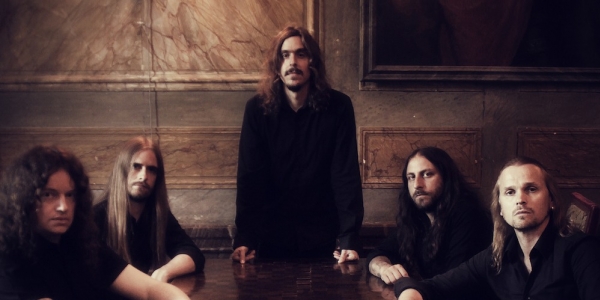The present and immediate future of Opeth is extremely interesting however. They have just released their tenth full length studio album, appropriately titles Heritage, and as ever they have pushed the boundaries of their sound and what heavy music can be. The difference this time is that they’ve pushed those boundaries to almost breaking point, and created a work that is as unexpected as it is controversial, especially to their long term fans.
Heritage, to the as yet uninitiated (check out our album review this week), contains no death metal growling vocals, and nary even any distorted guitars and pounding drums. In fact, it can scarcely be called ‘metal’ at all. It hearkens strongly back to the 70’s progressive rock days that main man Mikael Akerfeldt holds so dear, throwing in some jazz, folk and other elements besides, and the man himself gave Beat his thoughts regarding this quite profound change of direction recently.
“I love it,” he enthuses in his rather understated manner, “at the moment it’s the one Opeth album that I listen to, of course. I listen a lot to our records when they’re done, and then I reach a point where I’m just done with that record. I won’t actually listen to it again until I need to learn how to play it again. But right now I’m still listening to it quite a lot, and well, I’m loving it! I think it was the right time for us to do an album like this, and it was basically the only choice for me. I was writing these songs and it was a matter of this or nothing to be honest.”
“I wrote a couple of songs that were a continuation of the stuff we did on (previous album) Watershed,” he recalls, “and it didn’t work, I didn’t feel those songs. So I started from scratch again. I wrote these songs and they’re different, we’d never done anything like this album before. And so, it’s special because of that.”
The album contains a tribute to a fallen hero of the Metal scene. Slither is an ode to the diminutive but mighty vocalist Ronnie James Dio, who fronted classic heavy music acts such as Rainbow, Black Sabbath and his own band Dio. He was a true inspiration to Mikael, the music of Opeth and the heavy music scene in general, but was tragically taken from us in May last year.
“Yeah he is,” agrees lead vocalist Mikael Åkerfeld, when asked if Dio was a massive influence on his work, “I didn’t know him well, but I did meet him once. I spent an evening with him, having drinks with him in Japan once. It was amazing. He was an amazing guy and I love him. We came into this bar in Tokyo, and it was completely empty next to Ronnie and his drummer Simon Wright. I came in there with Mendez, our bass player and Peter our guitar player. And he just stood up and said ‘Guys! Come sit with us!’ And I was like ‘Yeah, right, that’s a mirage or something’. But it was Ronnie sitting there, he was asking me to sit down with him! And I was like ‘fuck, that’s crazy’, but of course we sat down with them, and I was so shy, I had to down a few drinks, and then I just bombarded him! He was just very gentle, and very nice, very human. He didn’t have any of that type of ‘rock star’ thing. I don’t know why you expect those things from those types of people, but I grew up with him. He’s always been there, and it’s such an important part of my musical upbringing. And up ‘til his death he was always relevant. I love him like a family member. When he passed away it was a devastating blow for me, and that’s why we’re doing this song.”







